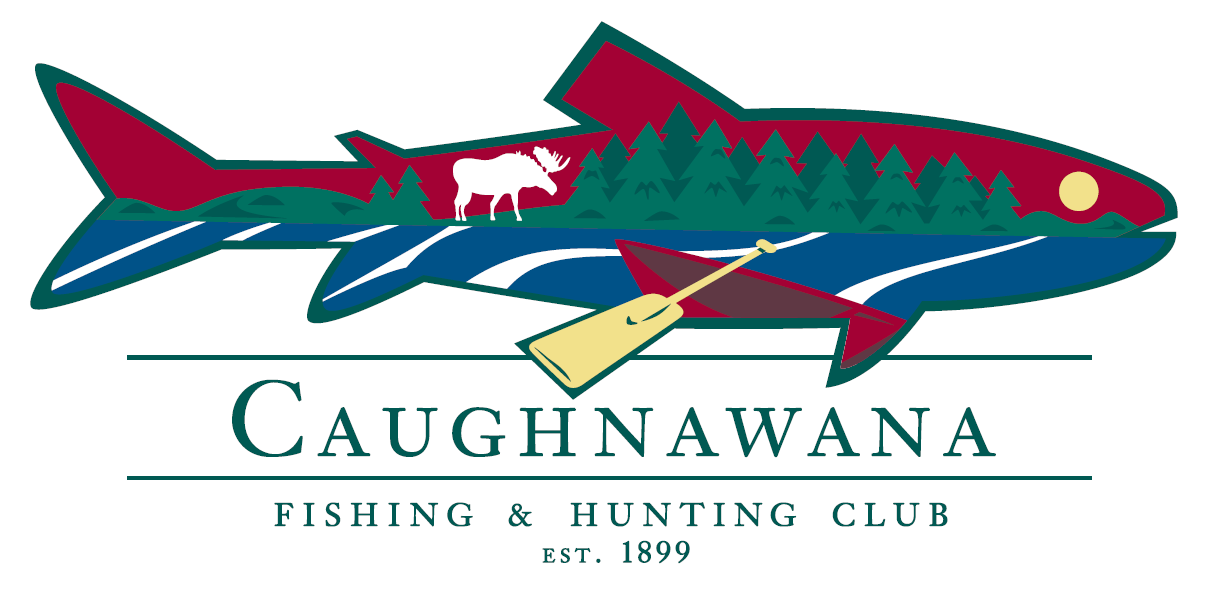Welcome to the Caughnawana Fishing & Hunting Club, an exclusive haven where our esteemed members and their guests have enjoyed unparalleled access to a wilderness playground of untouched splendor since 1899.
A Brief History: Nestled in Quebec, just 20 air miles north of the majestic Ottawa River, lies a region that has captured the hearts and imaginations of many. This enchanting area is home to the awe-inspiring Gatineau Hills, where the Caughnawana watershed flows in two directions, nourishing countless lakes and ponds. For anglers, the waters of Caughnawana are teeming with trout, pickerel, and pike, making it a haven for fishing enthusiasts. Hunters also flock to this region for the excellent moose, bear, and upland bird shooting opportunities it offers. And for those who simply crave the great outdoors, Caughnawana is a playground of untouched natural beauty.
Established in 1895 by a group of New York business executives who were captivated by the area's abundant fishing and hunting opportunities, the Caughnawana Fishing and Hunting Club has a rich history. Incorporated in 1899 as a private non-profit club, the original lease covered 100 square miles of exclusive member use. However, in the late 1970s, the Quebec government, recognizing the value of the region's resources for all, revoked the private leases and introduced the system of provincial parks known as "Zecs." Today, the Club owns 165 acres of prime shoreline property within the original lease area, situated in the breathtaking Zec Restigo.
The Caughnawana Fishing and Hunting Club is not just any ordinary club - it is a true gem of Canadiana, unlike anything else in the country. Its history, its natural beauty, and its commitment to preserving the wilderness make it a truly special place for outdoor enthusiasts.
By Float Plane/Helicopter: N46.32.01 x W78.18.41 Google Maps: ” N46.5354,W78.3075 ”
By Vehicle:
Driving directions to Caughnawana for the 2025 season are as follows:
Caughnawana via Temiscaming and the Maniwaki Road
1 – Entering North Bay from the south or east (Toronto, Ottawa) turn right at the third set of lights onto Trout Lake Road, just past the Northgate Mall. (Note: If entering North Bay from the West (Sudbury) you will of course turn left on Trout Lake Rd at the West side of the Northgate Mall)
2 – Trout Lake Road turns into the highway for Temiscaming.
3 – After crossing the Ottawa River at the Temiscaming pulp mill turn left at the stop sign.
4 – Take the next right just before the Esso service station.
5 – At the four way stop with flashing red lights, turn right.
6 – After 8.2 kms you will see a MacEwen gas station on your right (now closed but sign still up). Turn right, then turn left immediately to stop at the ZEC checkpoint for your vehicle permit and ZEC permit if you have not already obtained them online. As usual your Quebec Fishing License will be available at the club.
7 – From the checkpoint the road is paved for about 4 kms then turns to a wide straight gravel road. Note the small blue “KM” markers posted along the side of the road. Continue until you get exactly to the 55 KM marker then turn right. Be very careful not to turn at KM 54 which indicates access to ZEC Restigo. The turn is exactly at KM 55 and has a sign indicating Caugnawana Lake.
8 – Go 22KM following what is clearly the main traveled road. There are little yellow mileage signs every KM along the way but some are obscured by foliage but watch for them as there are many appealing side roads. The route to Caugnawana is clearly marked by ZEC posted signs. At KM 16 you will pass through a trailer park on Petit Jardin and just past KM 22 you will encounter a fork with a yellow sign F1. There is also a sign pointing to Caugnawana so turn left at F1.
9 – Follow the road for 2 KMs to another major fork F2 ( yellow sign and painted red rock indicating the direction to Hamilton. There is also a sign pointing to Caugnawana so turn right here.
10 – Stay on the main road for another 4 KMs again watching for the signs pointing to Caugnawana at any major intersection. Avoid the left fork to Hamilton and keep right to reach the landing at Restigo with club boats and an old trailer. Straight ahead 1/2 KM brings you to the old Route 26 on which you turn right. 5 KM along this route will bring you to an orange highway pylon. Turn right on the 1 KM Caughnawana club access road.
As a safety precaution it is always wise to let the guardian know your travel plans.
Click below to download a WORD document of the driving directions













